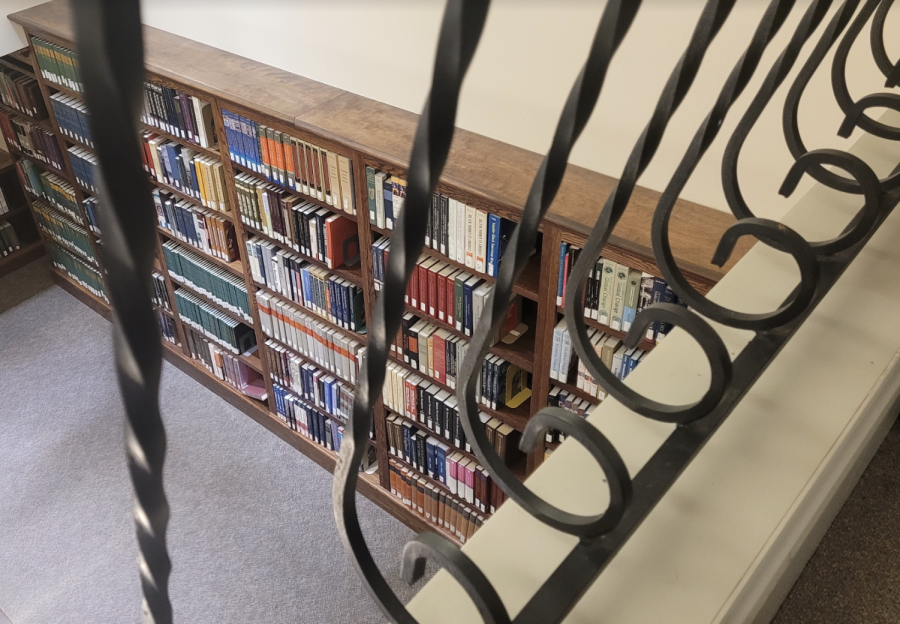A look at banned books and Phillip Sidney’s ‘Defense of Poesy’
While literture can be raw and controversial, it remains an essential expression of beauty and humanity which must be protected
November 3, 2022
Literature is a beautiful, powerful thing. Yet, like any power, some fear it. Through literature, anybody can make their voice heard, but what happens when some do not wish to hear that voice? This is the debate that currently lines increased book bannings across the U.S.: an old power struggle that has donned many covers. By examining the long, troubled past of this literary battle—including Renaissance philosopher Phillip Sidney’s chapter within it—one can gain a deeper insight into the front it occupies today. Through his “Defense of Poesy,” Sidney explores the historical, educational, and enlightening value of literature: values that have begun to fade under the growing shadow of the Banned Book Movement.
One of Sidney’s arguments that still rings true through the Banned Book Movement pertains to the importance of literature in historical preservation. Today, a sense of control can be seen over how certain books are banned in an attempt to rewrite history. Sidney argues that literature makes “pens deliverers of knowledge to their posterity” (548). The key word in this statement is “pens.” Plural. History cannot be told through one voice. It is a multilayered landscape of different perspectives, opinions, and views. To whittle this landscape to only the accounts that one claims are “proper” and “useful” is to reduce it to a bare, drought-ridden plane. It is completely normal to disagree with certain views, to wish certain historical stories never had to be told. But dissent is the heart of debate, and debate is the heart of change. In the end, if the world cannot learn from its mistakes—and from the literature that outlines them—it is doomed to make such mistakes again.
Just as literature is a crucial historian, Sidney also identifies the important work that stories do as teachers. Teaching is a sparking of flame, an opening of doors. But one of the greatest fears that drives a book to be banned is the idea that it may open the wrong door.
Some believe that because they cannot find the value in a piece, it must have no value at all. Sidney argues the contrary, that literature is the “first light-giver to ignorance,” which allows readers to inch their way closer to “tougher knowledges” (548). Not every bit of information that is useful resides in the most formal, eloquent texts. Lessons can come from any page, and any author. The world is a very big place. To take pieces of this world away for the sake of “trimming the messy edges” is to paint it falsely. To renounce a story based on secular opinion is to snuff a flame before it ever gets the chance to shine.
One final tie that Sidney’s words have to the Banned Book Movement lies in the bits of beauty that are lost with every closed cover. It is sheer instinct to wish to protect the youth of this world. But for many, this instinct tends to pounce prematurely on the page. All it takes is one wrong word, one off chapter, to lump a book in with the mass of mysterious, potential dangers for young readers. In their generalizations, many overlook that the world is frightening already. Stories, however, can give passage into worlds that don’t have to be so scary. Sidney identifies that literature seeks to “beautify our mother tongue” (549). And beauty looks different to everyone. Some see Harry Potter as an advocate for witchcraft and other threatening ideals. But for a kid living in a world of melting glaciers and dwindling rainforests, these wizarding adventures make miracles seem possible. To ban a book without careful consideration is to steal a flash of beauty, a flare of hope, in a world already struggling to keep these things alive.
Despite having made his claims centuries ago, Sidney’s advocation of literature’s historical, educational, and inspirational significance still echoes deeply in the ongoing debate of what makes a writing “valuable.” The issues that surround banning books highlights the extent of what can be stolen out of fear, especially when guised in the idealistic hood of protection. In the end, this fear can only be conquered if one learns to see a book as more than a cover and pages, more than a pawn. As a society, we place a great deal on the shoulders of our youth. We ask them to be better than we ever were, fix what we never could. But how can we expect our children to write a brighter narrative for this world with an incomplete prologue? Literature is a beautiful, powerful thing. And our treatment of it now is invaluable in deciding whether the stories of future generations will be of growing light or snuffed matches.



